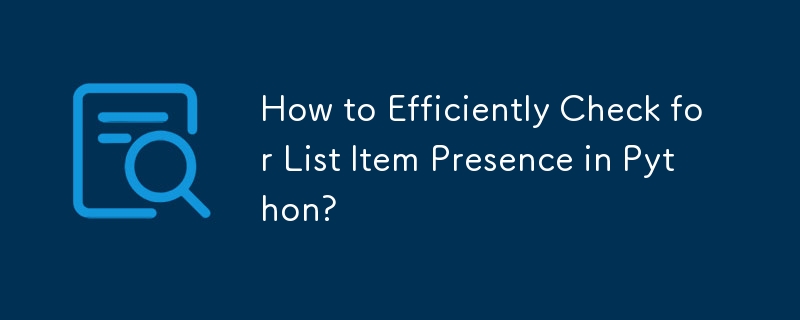Home >Backend Development >Python Tutorial >How to Efficiently Check for List Item Presence in Python?
How to Efficiently Check for List Item Presence in Python?
- Mary-Kate OlsenOriginal
- 2024-11-14 09:55:02482browse

Checking for List Item Presence Using Iterators and Sets
When verifying if any item from a group of elements is present in a list, one natural approach is to iterate through each element and examine its existence. However, Python offers more efficient methods than writing an explicit function for this task.
The typical approach involves logical operators like 'or,' but as demonstrated in the example, this can lead to unexpected results due to Python's truthiness evaluation mechanism.
A preferred method is to leverage comprehensions. For instance, the following code creates a new list by iterating over items in L1 and filtering out only those that exist in L2:
L1 = [2,3,4] L2 = [1,2] [i for i in L1 if i in L2]
This returns a list containing the common elements, which can be empty if no matches are found. If a non-empty list is returned, at least one item in the group was present.
Another approach utilizes sets. Sets are unordered collections in Python, and they provide an efficient way to check for the presence of an element. First, convert L1 and L2 into sets using the set() function:
S1 = set(L1) S2 = set(L2)
Then, find their intersection using the intersection() method:
S1.intersection(S2)
The result will be a set containing the common elements. Empty sets evaluate to False, so you can directly use the result as a truth value to determine if any items from the group were present.
The above is the detailed content of How to Efficiently Check for List Item Presence in Python?. For more information, please follow other related articles on the PHP Chinese website!

